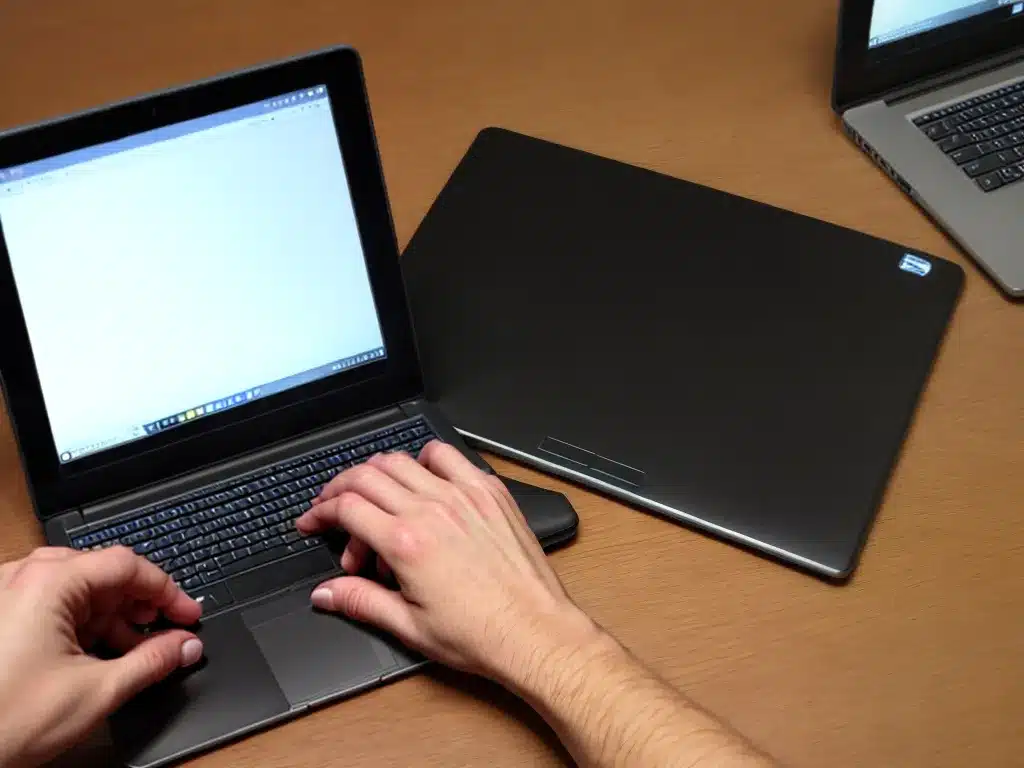
A laptop trackpad that is unresponsive or acting erratically can be frustrating. However, there are several troubleshooting steps you can try to get your trackpad working again.
Clean the Trackpad
Dirt, dust, and debris on the trackpad can interfere with proper functionality. To clean the trackpad:
- Use compressed air to blow out any particles lodged under the trackpad.
- Dampen a soft cloth with isopropyl alcohol and gently wipe the trackpad surface to remove dirt and oils.
- Allow the trackpad to fully dry before using your laptop again.
Cleaning the trackpad often resolves basic responsiveness issues caused by external contaminants.
Update or Reinstall Trackpad Drivers
Outdated, corrupt, or missing drivers can prevent communication between the trackpad hardware and your operating system.
To update the drivers:
- Open Device Manager in Windows or System Profiler on Mac.
- Expand the “Mice and other pointing devices” section.
- Right click on the trackpad device and select “Update driver software” on Windows or uninstall/reinstall on Mac.
- Download the latest driver from the manufacturer’s website and install it.
Updating the drivers ensures maximum compatibility between the hardware and software.
Adjust Trackpad Settings
The trackpad settings may have been unintentionally changed, causing the unresponsiveness.
To check the settings:
- Open the Trackpad or Mouse control panel on your laptop.
- Reset any altered scrolling, tapping, dragging or other settings to default.
- Disable any options that prevent the trackpad from working properly.
- Test the trackpad responsiveness after changing settings.
Restoring default trackpad settings often resolves erratic behavior.
Disable Accidental Input Prevention
Some laptops have a feature that disables the trackpad temporarily when typing, to prevent accidental cursor movement.
To check if this is enabled:
- Look for a “Disable trackpad while typing” or similar setting in your trackpad settings control panel.
- Uncheck the box next to this setting to keep the trackpad active at all times.
Disabling accidental input prevention resolves issues of the trackpad becoming unresponsive during typing.
Update BIOS/Firmware
On rare occasions, a firmware bug can cause trackpad problems. Updating to the latest BIOS or firmware can correct compatibility issues.
To update the BIOS:
- Go to your laptop manufacturer’s website and download the latest BIOS update.
- Follow the instructions to flash the BIOS and restart your computer.
Updating BIOS and chipset firmware eliminates bugs that may disrupt proper trackpad functionality.
Replace the Trackpad
If all else fails, the unresponsive trackpad may indicate a hardware failure requiring replacement.
To replace the trackpad:
- Order a replacement trackpad module for your specific laptop model.
- Follow step-by-step video or instructions to disassemble the laptop base and swap out the faulty trackpad.
- Reassemble the laptop and test trackpad responsiveness.
Replacing a failed physical trackpad component is the only solution for a completely unresponsive cursor.
With proper troubleshooting, you should be able to get an unresponsive laptop trackpad working again. Let me know if you have any other questions!












